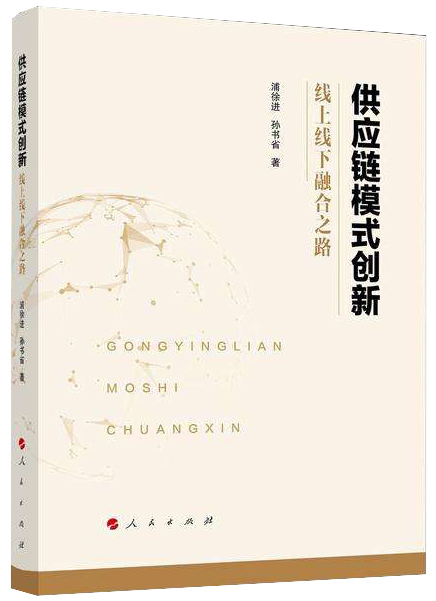Integrating online and offline supply chains

Innovation with Supply Chain Models: Online and Offline Integration
In today’s economic globalization, the management of supply chains has become an important core strategy for companies and furthermore a new driving force for China’s economic growth. At present, there is an ongoing collision between ideas of online and offline supply chain operation. One idea focuses on the digital operation inherent in online internet firms; the other is the refined operation of traditional offline companies. The collision of the two has given rise to the “online + offline” operation model.
In the book Innovation with Supply Chain Models: Online and Offline Integration, Pu Xujin, a professor from the School of Business at Jiangnan University, and Sun Shuxing, a doctor from the Lingnan College at Sun Yat-sen University, discuss the unique functions of both online and offline supply chains, analyze the current situation of their integrative development and forecast tendencies of future development.
The book as a whole can be divided into five parts: the current situation of online retailing, the features and challenges of different stages of the supply chain, the integration of online and offline supply chains, the innovation with the supply chain of fresh agricultural products, and the prospect of modern supply chains.
According to the dynamic evolution of retail channels, the authors divide the development process of supply chains into four stages: traditional offline physical stores, pure online e-commerce, online and offline competition, and online and offline integrative development.
Due to the virtual nature of the internet, consumers cannot immediately perceive the quality of products when they pay. If a new product is exhibited just in the form of a picture or a video, consumers will not be able to truly perceive its quality, size and other details. The big differences between “seller show” and “buyer show” of the same product will reduce the desire of consumers to make purchasing decisions. As such, with increasingly fierce competition in the internet industry, the phenomenon of winner-takes-all will become increasingly prominent in the e-commerce industry. If pure e-commerce sticks to its single online platform, it will face growing difficulties in operation. In this context, e-commerce needs to step up offline layout to seek more opportunities for development.
Online and offline integration points the way for the future development of modern supply chains, given the operational difficulties facing traditional brick-and-mortar stores and pure e-commerce and the fierce competition between the two. We should take advantage of physical stores, e-commerce and mobile internet, achieving the data sharing of goods, consumers, sales and marketing. In addition, we can try to replace old shelves with intelligent terminals and provide consumers with more diverse consumption experience.
Li Xiaozhong is dean and a professor of the College of Economics at Hangzhou Dianzi University.
edited by YANG LANLAN
